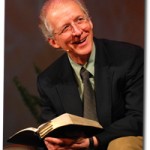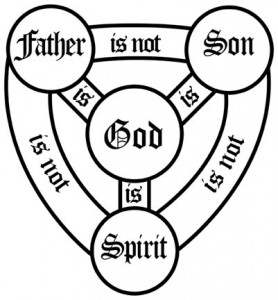 Well said Dr. Piper! I could not agree more. God has never taken a “risk.”
Well said Dr. Piper! I could not agree more. God has never taken a “risk.”
John Piper writes:
What Is the Basis of Risk?
Risk is “an action that exposes you to the possibility of loss or injury.” (“Risk Is Right” in Don’t Waste Your Life, 79). “Possibility” is a key word. If you know what you will suffer, it’s called sacrifice, not risk. God requires both from us. God demands a life of intentional sacrifice (Philippians 2:4-8), and he demands risk for the gospel — in smaller ways of dying daily (1 Corinthians 15:31), and possibly in the bigger way of martyrdom (Luke 14:26).
The basis of that demand for sacrifice and risk is the absolute, God-given assurance that in the end there is no ultimate risk. We risk life now that we may gain it forever. Risk persecution for Christ’s sake “for your reward is great in heaven” (Matthew 5:12). Risk the loss your goods, “for you will be repaid at the resurrection of the just” (Luke 14:14). Risk being treated unjustly, for “vengeance is mine, I will repay, says the Lord” (Romans 12:19). Risk being counted as sheep for the slaughter for nothing “will be able to separate us from the love of God in Christ Jesus our Lord” (Romans 8:36, 39).
The promises of God that all things will work together for our ultimate, Christ-exalting good is the basis of our risk (Romans 8:28). And corporately the basis of global missions, with all its risks, is the total assurance that “the kingdom of the world [will become] the kingdom of our Lord and of his Christ, and he shall reign forever and ever” (Revelation 11:15). The mission cannot fail.
Alan Hirsch and Michael Frost write in The Faith of Leap:
It seems correct to say that God took something of a risk in handing over his mission to the all-too-sinful human beings who were his original disciples—and all the sinful disciples beyond them. We wonder what Jesus must have been thinking on the cross, when all but a few powerless women had completely abandoned him. Did he wonder if love alone was enough to draw them back to discipleship? The noncoercive love of the cross necessitated a genuinely human response of willing obedience from his disciples. Given our predispositions to rebellion and idolatry, it is entirely conceivable that history could have gone in a completely different, indeed totally disastrous, direction if the original disciples hadn’t plucked up the internal courage to follow Jesus no matter where. (36–37, Locations 464)
The view of God embodied in this quote from Hirsch and Frost is
1.false to the Scriptures;
2.built on a false philosophical presupposition;
3.damaging to the mission of Christ in the world;
4.and belittling to the glory of God.
1) False to the Scriptures
Their view of God and Jesus is that they are so little in charge of the success of the Great Commission that “it is entirely conceivable that history could have gone in a completely different, indeed totally disastrous, direction if the original disciples hadn’t plucked up the internal courage to follow Jesus no matter where.”
This is false. God is fully in control of his mission on earth: a) Jesus did not wonder if it would succeed; b) God can be utterly counted on to finish it, and c) every person ordained to eternal life will be drawn into the mission.
Continue reading →
 Heresy is not a victimless crime. Theology matters!
Heresy is not a victimless crime. Theology matters!
 “The LORD has established his throne in the heavens, and his kingdom rules over all.” – Psalm 103:19
“The LORD has established his throne in the heavens, and his kingdom rules over all.” – Psalm 103:19 Well said Dr. Piper! I could not agree more. God has never taken a “risk.”
Well said Dr. Piper! I could not agree more. God has never taken a “risk.”